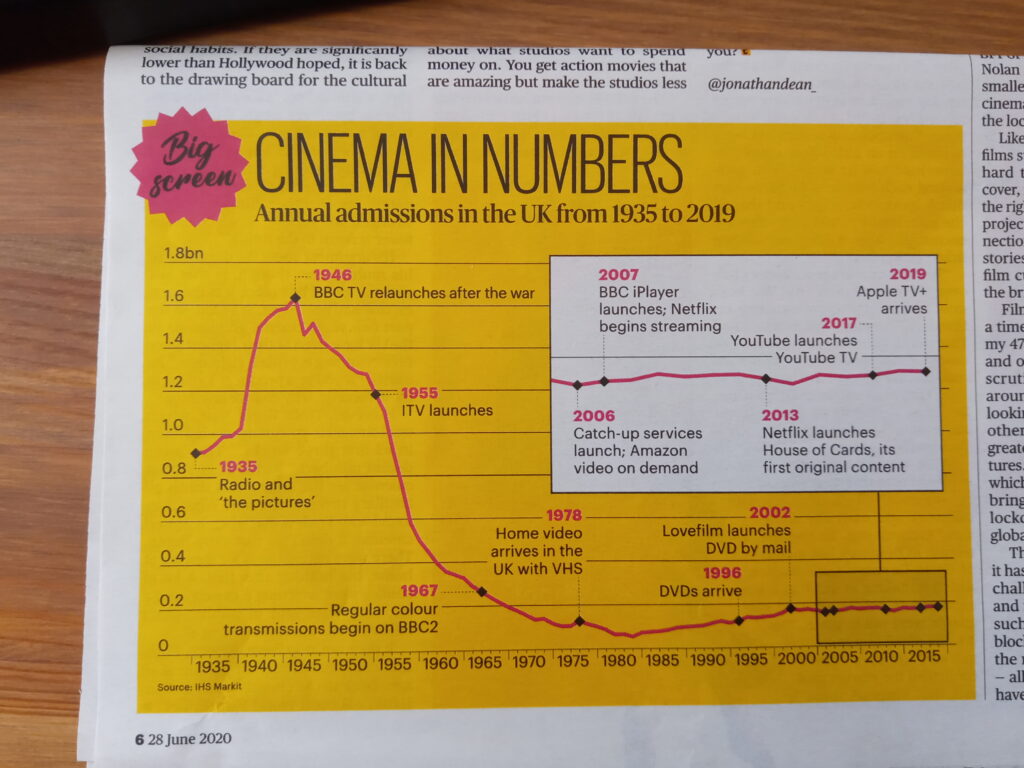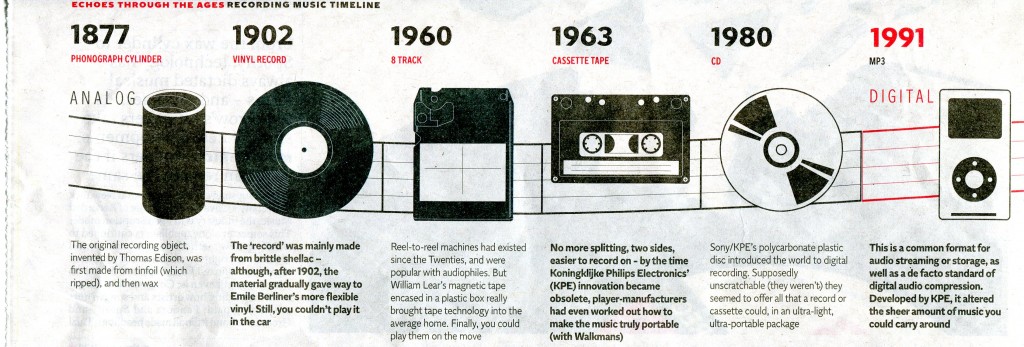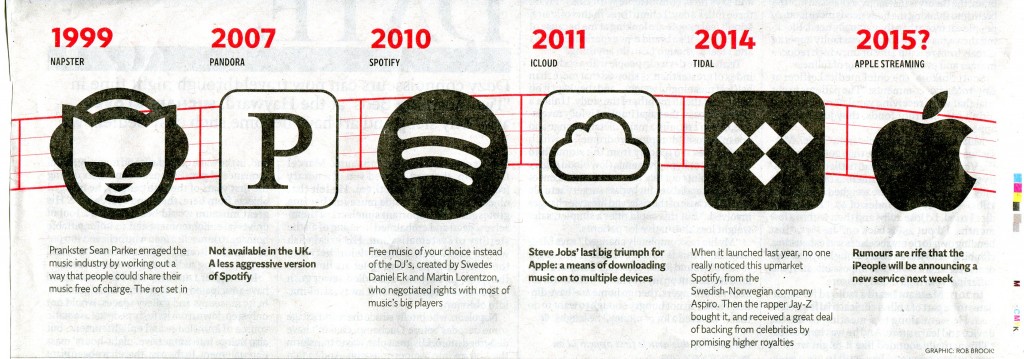What’s it all about?
Understanding how a products sales are going to change over time as demand for it changes and how profits need to be made to cover the cost of developing and making the product and eventually ‘retiring’ it and the facilities associated with it.
Watch this.
Further reading.
Life Cycle Costing
The costs of decommissioning/disposing of your asset should be taken into account when considering…
Posted by Management Accounting Info on Tuesday, 28 December 2021
Products have a ‘life time’, the period in which they are produced. Usually the decline and end of a product’s life comes about because of technological replacement – a better product arrives.
A product can decline without ever actually dying. Look how cinema attendances have declined in the last seventy years, but cinema chains are still very profitable.
The decline can be quite quick in some circumstances. Cancer concerns have effectively ended the ‘life’ of talcum powder in North America. It will still be sold here apparently as we don’t seem to have recognised it as public health issue yet.
Life Cycle Costing
How a product can go from having a good level of sales (Maturity) to rapidly declining sales very quickly. Cancer concerns with talcum powder.
https://www.bbc.co.uk/news/business-52732755
Posted by Management Accounting Info on Tuesday, 28 September 2021
Vinyl records.
Life Cycles
You may have seen the increase in sales of music as LPs (Long Players) over the last few years. A format…
Posted by Management Accounting Info on Tuesday, 28 September 2021
How records are made. Note that there is still a labour element.
I didn’t think I would ever see cassettes for sale in a mainstream ‘record shop’ again though.

A cassette! September 2021. I thought they ahd become extinct in the ’90s.
Abandonment/Disposal as the final stage.
We should take into account the disposal costs of any product we make. For the most part it becomes somebody else’s problem (the consumer or society), but how much longer can this be the case?
We are seeing taxes come in on plastic trays for take-away food; how long before there are taxes on other uses of plastic?
The ban on imports of rubbish by China emphasises the need for a sensible domestic recycling policy, in reality when we recycle plastics we are really just ‘throwing them away somewhere else’.
What happens to your electonic waste?
There is going to be greater pressure on companies to be responsible for the ‘end of life’ treatment of their units of production as society realises it doesn’t ahve to take on the burden of disposal costs of items that companies have made a healthy profit selling.
This is likley to lead to design that facilitates recycling so as to reduce the cost (and reduction in profit) that comes about from the end of a unit’s life.
The Decline stage.
We talk about the Decline Stage and how this is usually when a product gets replaced. however, often there is a continuing small demand that ensures that it is worthwhile that a certain amount are still manufactured.
Life Cycle Costing
Decline phase.
Although we often think of the decline phase being the period in which sales for a…
Posted by Management Accounting Info on Monday, 16 August 2021
Here cassettes are an example of something that has not only continued, but is now expanding.
Still only a very small amount, but a market still exists. So, a long, long Decline Stage, but still an opportunity.
Video – the end of a format
I am old enough to remember VHS and Betamax coming in. I wouldn’t be surprised if many of you have never even dealt with video tape. That shows a short life cycle for a product, just 40 years.
What surprised me though was I thought Betamax had gone a long time ago. this does show that products can exist for a long time in the Decline stage. Presumably, Betamax tapes have been selling and making profit for Sony for most of this long decline.
http://www.theguardian.com/technology/2015/nov/10/betamax-dead-long-live-vhs-sony-end-prodution
There were suggestions that paper based books were in the decline phase as purchasers switched to e-books.
It now looks like those predictions may have been premature.
A good example of a product in the maturity stage or going in to the decline stage?
I’d been myself to a PC retailer (that’s what they called themselves anyway) that didn’t have PCs (only gaming machines and laptops) the day before seeing this article for the very reason quoted – the need to replace a PC.
This shows that declines can be reversed, even if it may only be temporarily, as existing user replace items. Next time I need a new computer it might be a laptop for me or some completely new product.
https://inews.co.uk/essentials/news/technology/pc-bounces-back-shipments-rise-first-time-five-years/
The Life Cycle of music formats, and now song length.
I’ve seen many changes and got several unplayable forms of music (no, not wax cylinders).
Continuing the story of changing formats.. the death of the album is predicted again…
http://www.bbc.co.uk/news/entertainment-arts-37444038
Cassettes were considered to be dead…
An example of a product in the decline stage for a number of years that has had a revival. Just showing that being in the decline stage does not mean the absolute end for a product.
Changing tastes and population size in a age group affect clubbing.
Changing attitudes affects a business. The other issue facing them is a change in the population demographics with fewer people in their target age range.
https://www.theguardian.com/music/2016/sep/24/uk-nightclub-visits-fall-by-a-quarter-in-five-years
Life Cycle Costing in practice.
Its application in building management.
Those responsible for property maintenance are very interested in the life cycle of their buildings. lengthy article, but see the part about Life Cycle Costing particularly.
http://facilityexecutive.com/2016/03/preventive-maintenance-facility-management/
Further Reading
Postings that will aid your understanding.
Life Cycle Costing
Another example of a product reversing the ‘Decline Stage’ of a standard Life Cycle.
We have talked…
Posted by Management Accounting Info on Sunday, 9 January 2022
Life Cycle Costing – an example of abandonment costs
An old example, but it illustrates the point very well.
Nuclear…
Posted by Management Accounting Info on Thursday, 4 November 2021
Life Cycle Costing
How a product can go from having a good level of sales (Maturity) to rapidly declining sales very quickly. Cancer concerns with talcum powder.
https://www.bbc.co.uk/news/business-52732755
Posted by Management Accounting Info on Tuesday, 28 September 2021
Life Cycles
You may have seen the increase in sales of music as LPs (Long Players) over the last few years. A format…
Posted by Management Accounting Info on Tuesday, 28 September 2021
Possible Written Questions.
(No indication of marks – the more marks a question gets, the more you are expected to write – detail that is, not just words!) If you can’t answer these, you need to do some more reading. I do ‘find’ questions elsewhere, so these aren’t all questions I have used myself.
Discuss the traditional four stages associated with the life cycle of any product and the additional two stages which may be included.
Discuss all the stages of a product life cycle based on product life cycle theory.
Assess the usefulness of life cycle costing in evaluating the profitability of products.



